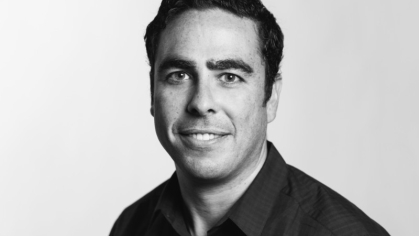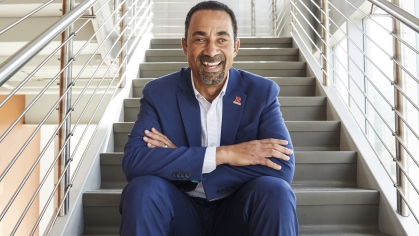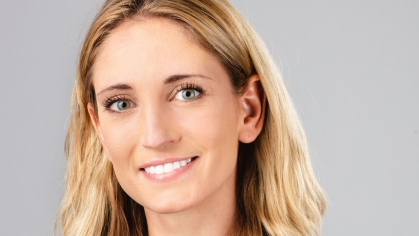“An engineering education is a preparation and foundation for lifelong learning.” – Peter Pupalaikis

Peter Pupalaikis, who earned his Rutgers Engineering degree in electrical and computer engineering, is a founding member and director of signal integrity at Nubis Communications, which describes itself as “accelerating the transition to the next generation of optics” that will be “more dense, scalable, and lower power than existing solutions.” Prior to that, he served as Teledyne LeCroy’s vice president of technology development for 25 years. A successful inventor and writer, he has previously summarized his achievements this way: “I pioneered DSP and microwave techniques as applied to high bandwidth real-time digital oscilloscopes.” In 2024, he was elected to the National Academy of Engineering, one of the highest professional honors accorded an engineer. He is currently serving as a member of the School of Engineering’s Department of Electrical and Computer Engineering Industry Advisory Board.
Why Rutgers?
I came from a broken family, and I was very poor with absolutely zero way of going to college. So, I joined the Army after high school, serving for two years, and saved enough money to put myself through school. I had no guidance. I applied to three colleges and was accepted by all, but Rutgers was the cheapest. I’m a self-made person and am so happy to be that. I’m also the first person in the history of my family to graduate college.
Why Electrical Engineering?
I made some fortunate choices in my life. While I was an expert in computers even in high school, I was smart to go to school for electrical engineering. Engineers are trained a certain way, and I learned things out of my comfort zone and benefited from a formal education as far as theory is concerned. Rutgers Engineering was super theoretical – and I’m glad it was. I’ve probably used everything I learned in my career. Engineers are some of the best educated people around.
What was your Rutgers experience like?
I socialized, things like that, and had a good time but it wasn’t the usual college experience. I had no safety net, and my biggest fear was flunking out. So, I was more focused on my schoolwork than most. I also worked as an engineer in a company doing computer stuff. I needed that work experience: on May 26, 1988, the day I graduated from Rutgers Engineering, I was flat broke without a dime to my name.
Tell me about your textbook “S-Parameters for Signal Integrity.”
I’ve heard it described by others as textbook for a graduate level course – not because it’s such a complicated topic but because it’s such a niche area called signal integrity, which is about how signals get moved around in your computer. I wrote it with the goal of putting together a syllabus and teaching some courses on this.
But then I joined a start-up company.
What is your role with Nubis?
I’m one of the co-founders. Now we’re about 45 people and are about four years in. Our core technology is optical communications in a data center reach. We’re trying to do something no one else is doing.
Being at a start-up I have to do a little of everything, even mundane tasks. I’m mostly focused on the high-speed electrical side of things. I wrote an end-to-end link simulator to simulate our designs as we progress to building things. I work on signal integrity for test boards for a module the size of a sugar cube that you could put all the internet traffic of a little town through. I design testers for these things.
How many patents do you hold?
If my recollection’s correct, I hold 56 US patents, although some are filed worldwide, but the number alone doesn’t mean much. Almost all of them are in products, which I am proud to say. And some are really cornerstones of the technology that they pertain to.
What does your election to the NAE mean to you?
For an industry person, it’s nice to be recognized.
What advice would you give to today’s engineering students?
I would tell them that the world is a lot different today. My father was a non-degreed engineer who tinkered with radios. I tinkered with computers, which is how I started in this whole thing.
My three children are all engineers. My middle son even majored in electrical and computer engineering at Rutgers. I’ve told them a key thing: an engineering education is a preparation and foundation for learning for the rest of your life.
I’d also encourage students to do things outside of school and take advantage of the indispensable things the university offers.
What do you do for fun?
I like to spend time with my girlfriend. I have a dog I love, a Taiwan dog that’s a street dog kind of breed.
To get a two-year enlistment, I was a cook in the army, which was quite bizarre. I wanted something I could use to keep myself afloat and figured I could always cook in a restaurant. When I lived in Philly, I even cooked in a Thai restaurant– and became quite good at that. I do a lot of cooking as a hobby. I also like to mix artisanal cocktails, to go with the food.
If you could go on vacation tomorrow, where would you go?
Probably for my next European vacation, I’d go to Poland, partly because it’s part of my giant mix of ethnicities.
I’m more of a homebody, but with work, I’ve had a great fortune in my life to not have a super traveling job, yet have been able to see a lot of the world by accident.


